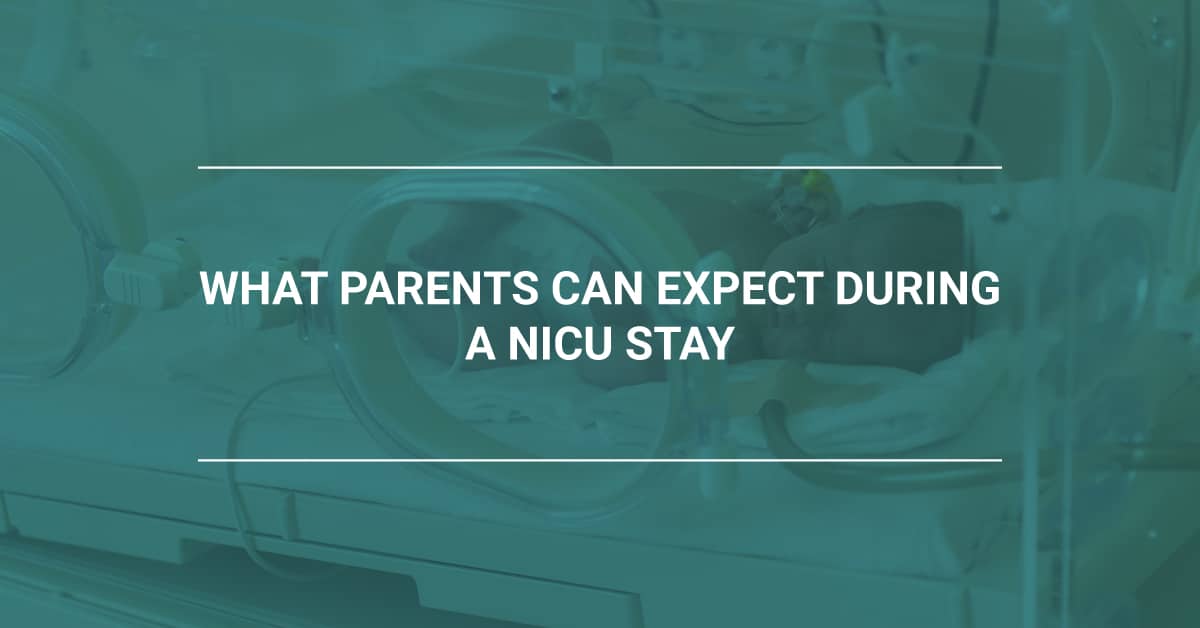
If your baby is born premature or with certain medical conditions, they may not be able to stay with you in the maternity ward of your hospital. Instead, they may be moved to a different unit to receive specialized care: the NICU. While in the NICU, a team of specialists will provide a higher level of care to help your newborn achieve the best possible outcome.
A NICU stay can be stressful for parents. Instead of going home with a healthy baby, you may be making trips back to visit your baby in the hospital for days or weeks after their birth. Understanding more about the NICU – and what to expect during a NICU stay – can make the process easier.
At BILA, we are dedicated advocates for families whose children have suffered birth injuries. If your baby has suffered a birth injury that may have been caused by medical negligence, we are here for you. Reach out today to schedule a free consultation with a birth injury lawyer in your province.
What Is the NICU?
The Neonatal Intensive Care Unit (commonly referred to as the NICU) is a special area of the hospital for babies who need extra support. While each hospital is different, a NICU typically has more advanced medical technology available as well as trained medical professionals who can provide specialized care to babies who need the extra support. The NICU is for newborns – 28 days old or younger – while the Pediatric Intensive Care Unit (PICU) is for older babies, toddlers, children, and teens.
Many babies who are admitted to the NICU are pre-term meaning they were born before 37 weeks of pregnancy, have low birth weight, or have a condition that requires additional medical care. In Canada, approximately 8% of all births are preterm. Many preterm babies also have low birth weights, and as such, are often admitted to the NICU.
In other cases, babies who have difficulty breathing, heart problems, infections, birth defects, or birth injuries may be admitted to the NICU. For example, if a baby suffers hypoxic ischemic encephalopathy (HIE) due to oxygen deprivation during labour and delivery, they may be admitted to the NICU to undergo cooling therapy and other treatments.
There are certain risk factors that may increase the likelihood of a baby spending time in the NICU. This includes:
- Maternal age (under 16 or over 40)
- Maternal substance abuse
- Gestational diabetes
- Multiple pregnancies
- Fetal distress during delivery
- Birth asphyxia
- A breech birth or other abnormal position
- Nuchal cord (umbilical cord wrapped around the baby’s neck)
- The use of forceps or a vacuum to assist delivery
- Cesarean delivery (c-section)
- A baby born before 37 weeks or after 42 weeks
- Small for gestational age
- Respiratory distress in the baby
- Hypoglycemia
- Low or high birth weight
When your baby is born, your obstetrician or your baby’s pediatrician may inform you that your baby may need to be moved to the NICU. While this can be scary and worrisome, it is often the best place for a baby that has a challenging start.
What Conditions Are Treated in the NICU?
A wide range of medical conditions may be treated in the NICU. As noted above, one of the most common reasons for a baby to be admitted to the NICU is being born preterm. In addition, a baby may be placed in the NICU if they have specific issues or diagnoses, such as:
- Breathing difficulties that may require a ventilator or medication.
- Lung infections like pneumonia
- Heart conditions or defects
- Respiratory distress syndrome (RDS)
- Jaundice, kernicterus and hyperbilirubinemia
- Certain bacterial infections, such as E.coli
- Feeding issues that may require the use of a feeding tube or IV nutrition
- Being born as a multiple (twin, triplet, or higher multiple)
- A growth-related condition, including being small for gestational age, low birth weight, or high birth weight
- Difficulty regulating body temperature
In some cases, a baby needs to be moved to the NICU due to medical negligence that results in a birth injury, such as birth asphyxia. Once in the NICU, they will receive the appropriate level of care for their medical condition.
What Are NICU Levels of Care?
There are typically different levels of care within the NICU. Generally, the lower levels of care are for babies who are more medically stable. The levels include:
- Level I: This section is for babies between 35 and 40 weeks of age who are generally stable, can breathe on their own, and maintain their own body temperature.
- Level II: This section is for babies born at or after 32 weeks who weigh more than 3.3 pounds, and who need a device to help them breathe. Typically, if newborns on Level II care cannot breathe independently after a day, they will be moved to Level III care.
- Level III: This section cares for more critically ill newborns, including those younger than 32 weeks, those weighing under 3.3 pounds, those who need equipment to breathe, those who are critically ill, and/or those who need surgery.
No matter what level of care your baby is receiving, they will have a NICU team assigned to their case. This may include medical professionals such as a neonatologist, a neonatal nurse, a dietician, a lactation consultant, and/or a social worker. They will help you understand your baby’s needs and will work with you to assist you with the transition to home or a lower level of care once your baby is discharged.
What Can I Expect During a NICU Stay with My Baby?
Learning that your baby has to be admitted to the NICU can be incredibly scary. The NICU itself can be an overwhelming place, full of machines, staff, and beeping monitors.
Each NICU stay is different. Your baby’s condition will determine the level of care that they need. For example, if your baby cannot regulate their own temperature, they may need to be in a small heated bed (incubator). If they have jaundice, a phototherapy device may be attached to the side.
Some of these incubators are closed with arm holes to reach in, while others are open on top, depending on the baby’s specific needs. A baby’s incubator or crib may be in its own little section, or in a larger room with other babies so that they can be more closely monitored.
All babies in the NICU will have various monitors to check blood pressure and heart rate, detect apnea, and more. They may also have tubes and IV lines to administer fluids, medication, nutrition, and/or oxygen. If you have any questions about the monitors, tubes, or anything else related to your baby’s care, you can ask a nurse for more information.
In the NICU, there will often be a strict schedule for visits, naps, and feedings. Parents are often welcome to help with feedings, to hold their babies (if they are well enough), and to simply be there with their baby. You will also be required to wash your hands and follow hygiene and safety protocols.
Visits are often limited in terms of time and number of people. Depending on each hospital’s policy – and your baby’s medical needs – siblings and extended family may not be able to visit. Parents are typically encouraged to come during visiting hours but to also get rest when they can.
Throughout their stay in the NICU, your baby will likely have regular testing done. This may include blood draws, CAT scans, ultrasounds, hearing and eye exams, weight checks, EKGs, MRIs, and urine tests. These test results will be used to determine what level of care your baby needs, as well as when they can go home.
The length of your baby’s stay in the NICU will depend on the size, weight, and the underlying reason that they were admitted to the NICU. Typically, a newborn can be discharged from the NICU when they have achieved certain milestones (known as A.F.T.E.R.):
- Antibiotics are discontinued or stopped
- Feedings can occur via breast or bottle, with normal blood sugar levels and continued weight gain
- Temperature is stable and within a normal range
- Events such as apnea and bradycardic episodes (slow heart rate) have not occurred
- Respiratory, which means that the baby can breathe well without the use of a ventilator
Keep in mind that for some babies, these milestones will look a little different. For example, some newborns may go home with a gastric tube for feedings or a tracheostomy tube to aid in breathing. Your NICU care team can help you understand what milestones your baby must hit before they can go home.
Having a baby in the NICU can be incredibly hard on parents. As difficult as it can be, try to make sure that you are taking care of yourself – getting sleep, eating regular meals, and engaging in self care. You can also seek out counseling or support if you are struggling with the often heavy burden of having a critically ill infant in the NICU.
How BILA Can Help
There are many situations where a stay in the NICU is not preventable for a baby. However, suppose a medical professional did not meet the standard of care for treating a mother and infant through pregnancy, labour, and delivery. In that case, it may lead to complications and even birth injuries. In this situation, medical negligence may have been the cause of a baby’s NICU stay and any resulting disabilities.
If you believe that your baby may have suffered a preventable birth injury, a birth injury lawyer can advise you of your legal options. For help with HIE cases or other types of birth injury claims, call BILA today at 1-800-300-BILA or fill out our online contact form to schedule a free initial consultation with a lawyer in your province.

John McKiggan, QC has represented clients in pediatric and adult injury claims that have resulted in multi-million dollar awards. In recognition of his accomplishments, John has been honoured by his peers, who elected him president of the Atlantic Provinces Trial Lawyers Association. He has also been named Queen’s Counsel, a designation recognizing exceptional professional merit. John has been selected for inclusion in the Best Lawyers in Canada in the field of personal injury law, he is listed in the Canadian Legal Lexpert Directory and has been named a local litigation star by Benchmark Litigation Canada.
